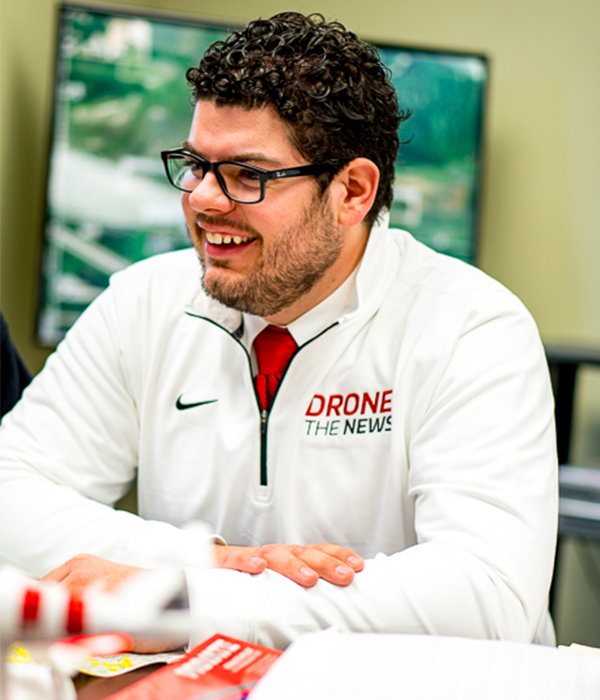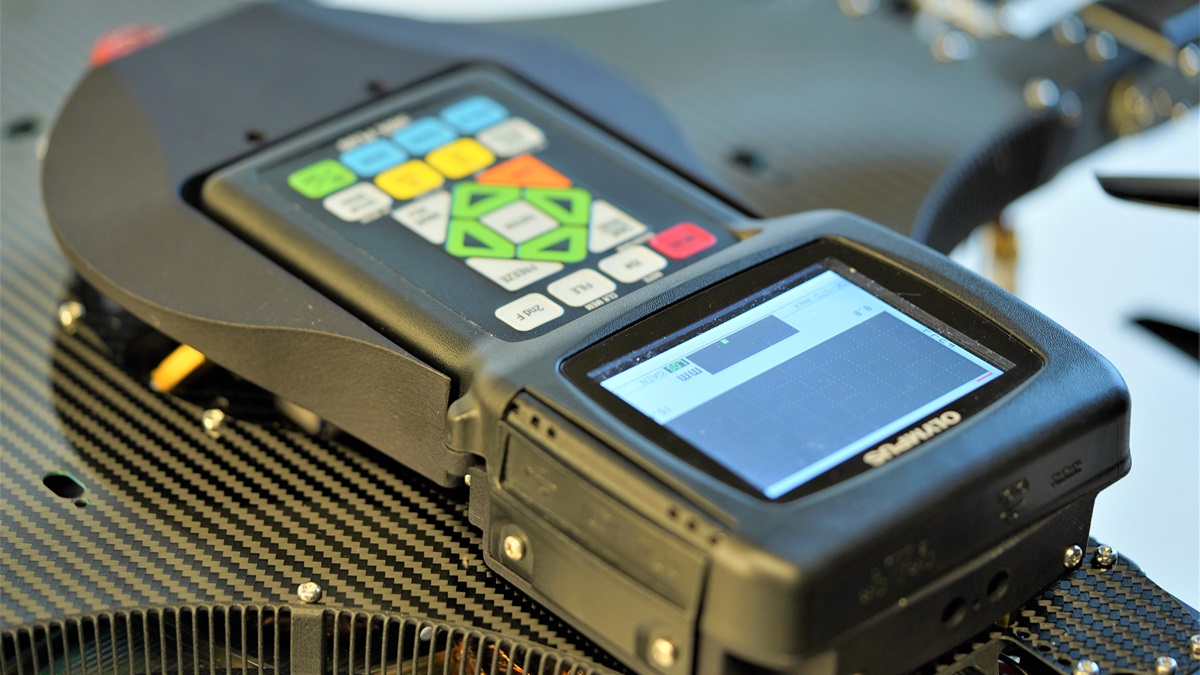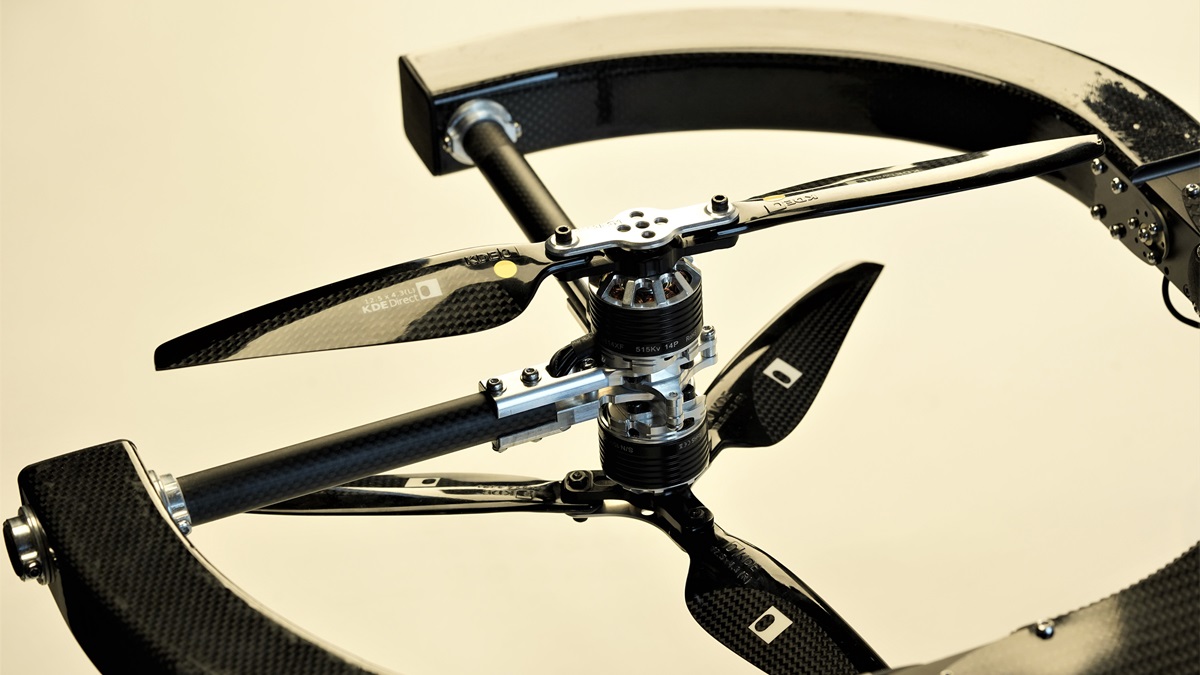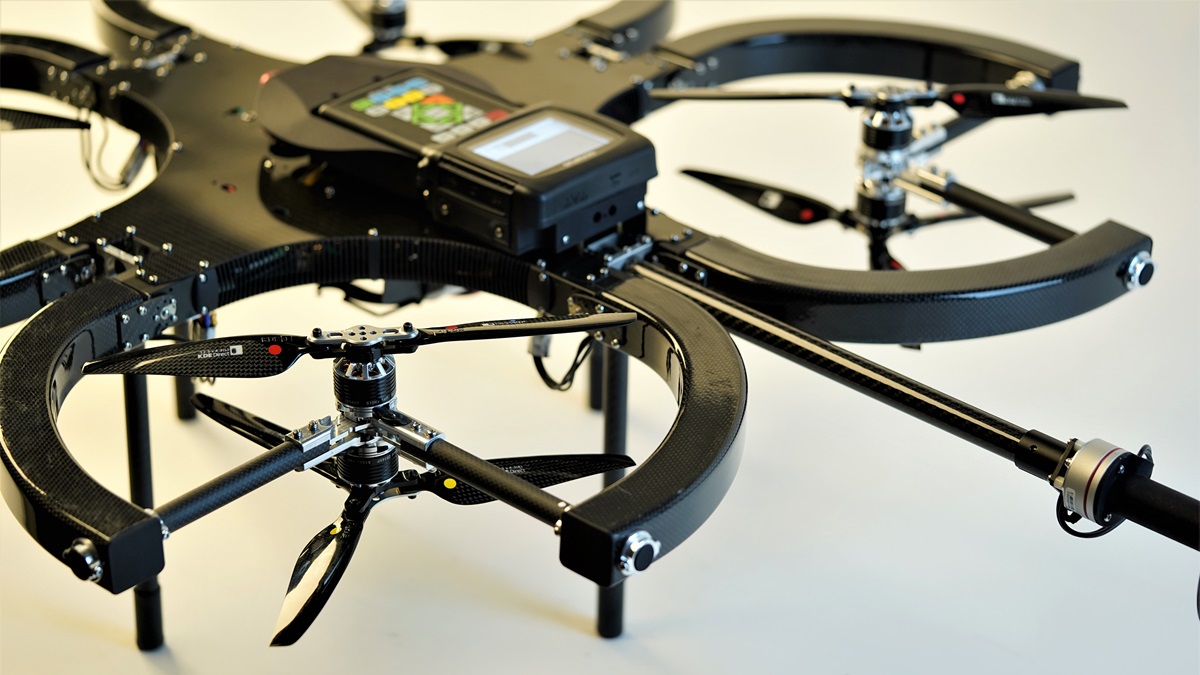Reimagining the quadcopter
Canadian startup produces tiltrotor for precision
Three friends from Toronto teamed up in 2016 to create a drone company in a garage, aspiring to revolutionize how quadcopters fly.
Skygauge Robotics Founder and CEO Nikita Iliushkin said in a video chat that the most commonly used small drones on the market have a key shortcoming when it comes to high-precision positioning: a rigid airframe. The fixed-pitch propellers attached to the motor arms must speed up or slow down in pairs, tilting the entire aircraft. While mechanically simple, this fundamental design shared by nearly every quadcopter creates a lag in response time, and that can pose serious issues if the aircraft is to take precise measurements using sensitive instruments that must make firm contact with the material being inspected.
This kind of precision comes in very handy when probing the structural integrity of a fuel tank using an instrument extended from the aircraft frame.
“Skygauge instantaneously reacts to any forces including wind. It can not only absorb forces, but also apply forces to objects as it gets close,” said Iliushkin.
Contact inspection requires a precise physical connection between the tool conducting the measurements and the surface of the object it is inspecting. Skygauge’s high-precision positioning and stabilization enable seamless data collection of surfaces that have different properties and characteristics. These benefits allow the drone’s probe to measure data such as rust deposits and structural thickness.
The company’s founders spent some time working overseas in the city that is also the home of DJI, where they participated in a business incubation and acceleration program in Shenzhen, China. The global experience helped Skygauge’s team work directly with manufacturers and hardware developers while accessing a valuable supply chain network. “China was hugely beneficial and will continue to be beneficial for any hardware company… We didn’t know the benefits of being there, until we were there,” said Iliushkin.
While many companies have struggled during the coronavirus pandemic, Skygauge’s sales have been expedited as inspectors across the world see added value through robotic inspection: “Now that [COVID-19] is on the forefront, the benefits of robotic inspection have never been greater,” Iliushkin said. The company’s sales pitch to industrial users includes increased safety, decreased time on site, and reduced costs.
Iliushkin’s long-term vision is to convert general labor opportunities into drone capabilities. Although currently focused on contact inspection, Skygauge’s goal is to become a platform that assists in maintenance tasks such as cleaning and painting. Iliushkin hopes that over time Skygauge will provide “a platform to create a workforce in the sky.”
Four years after entering the industry, Iliushkin’s Skygauge is now accepting preorders for a scheduled 2021 release. After years of market analysis and development, Iliushkin told AOPA that he’s “really excited to finally release a product into the market.” The company did not provide pricing details or specifications regarding the drone technology but encouraged those who are interested in preordering or learning more about Skygauge to visit the website.












